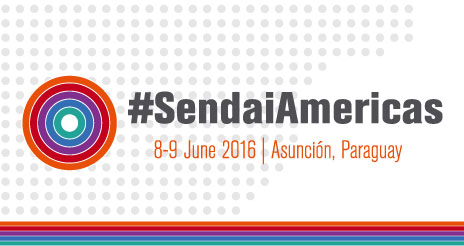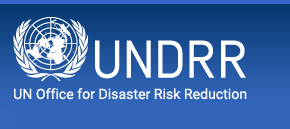- Our Mandate
- Mission and Objectives
- UNDRR in the UN
- Work Programme & Annual Reports
- Results Based System
- Work Partnerships
- Headquarters - Geneva
- SG-UN representatives for DRR
- Regional Office – The Americas and the Caribbean
- Head of the Regional Office – The Americas and the Caribbean
- What is Disaster Risk Reduction?
- What is the International Strategy?
- History of UNDRR
The Americas' Governments will agree the guidelines for the development of a Regional Action Plan for Disaster Risk Reduction to 2030

By UNDRR Americas
PANAMA CITY, Panama, Monday 06 June 2016 – Agreeing the guidelines for the development of a Regional Action Plan for Disaster Risk Reduction, as a key element to achieve sustainable development in the region, is the goal of the First Meeting of Ministers and High-Level Authorities on the Implementation of the Sendai Framework for Disaster Risk Reduction 2015-2030 in the Americas, to be held on 8 - 9 June 2016 in Asunción, Paraguay.
The Americas stills one of the most vulnerable regions to natural hazards and presents, among its main challenges, the need to integrate disaster risk reduction within the development planning processes and related sectoral efforts. This target will only be achievable if governments, civil society and the private sector integrate disaster reduction as a key element in development and investment planning.
The meeting —in which the participation of more than 170 high-level government representatives from more than 35 countries is expected, as well as United Nations staff and strategic partners—, will also be attended by the Special Representative of the Secretary-General of the United Nations, Robert Glasser, and will be opened by His Excellency Horacio Cartes Jara, President of the Republic of Paraguay. The guidelines for the development of an Action Plan, resulting from the meeting, will be decisive to advance in the agenda of integrate disaster risk management in the Americas, in accordance with the objectives of the Sendai Framework for Disaster Risk Reduction 2015-2030, adopted last year by United Nations member States in Sendai, Japan.
This meeting, unprecedented in the Americas, will conclude with a document agreed by the countries and called “Asunción Declaration” which will contain the elements proposed by the governments for a priority agenda and the foundations for a Regional Action Plan. This declaration will also serve as the basis for an extended discussion between governments and civil society, the private, academic and scientific sectors, groups organized in the context of the upcoming Regional Platform in 2017, where approval of the Regional Action Plan will be sought from participant States.
Being a high-level meeting, it will involve senior political and executive authorities, together with different stakeholders to contribute to the advancement of the sustainable development agenda in the region. In turn, it calls to identify results and opportunities for a joint evaluation of regional priorities for disaster risk reduction, and contemplates the identification of specific actions that can be applied in countries —mainly in sectoral areas— for disaster risk reduction, by analyzing progress and experiences in risk knowledge accumulated in the region in the last 10 years.
First Meeting of Ministers and High-Level Authorities on the Implementation of the Sendai Framework for Disaster Risk Reduction 2015-2030 in the Americas is organized by the United Nations Office for Disaster Reduction (UNDRR) in collaboration with the Secretariat for National Emergencies of the Presidency of the Republic of Paraguay (SEN), with the support of the United States Agency for International Development/Office of Foreign Disaster Assistance Abroad (USAID/OFDA), the Department of Humanitarian Aid and Civil Protection of the European Union (ECHO) Swiss Agency for Development and Cooperation (SDC), the Food and Agriculture Organization of the United Nations (FAO), the United Nations Development Programme (UNPD) in Paraguay, the Bourbon Conmebol Convention Hotel, the Red Cross of Paraguay, Itaipú Binacional and the International Organization for Migration (IOM).
Background
The commitment assumed by the United Nations Member States, after having adopted the Sendai Framework for Disaster Risk Reduction 2015-2030 (March, 2015; Sendai, Japan), consists in approaching disaster risk reduction and the increase of resilience to disasters with a renewed sense of urgency in the context of sustainable development and eradication of poverty. The structure of the Sendai Framework comprises, among other things, a series of principles, targets and priorities with global, regional, national and local lines of action.
For the next years, the States will need to implement the Sendai Framework to prevent new risks, reduce the existing one and strengthen resilience. At the same time, the States will need to develop baselines to evaluate the trends of these risks, with the aim of making decisions on public policy and investment informed by disaster risk data. Understanding risks will, therefore, provide a solid foundation to ensure the advances in terms of sustainable development.
Related links:
.
Follow the UNDRR news online:
 Now we have twitter account @UNDRR Américas y el Caribe
Now we have twitter account @UNDRR Américas y el Caribe
JOIN US!
Tweets por el @UNDRR Américas y el Caribe
